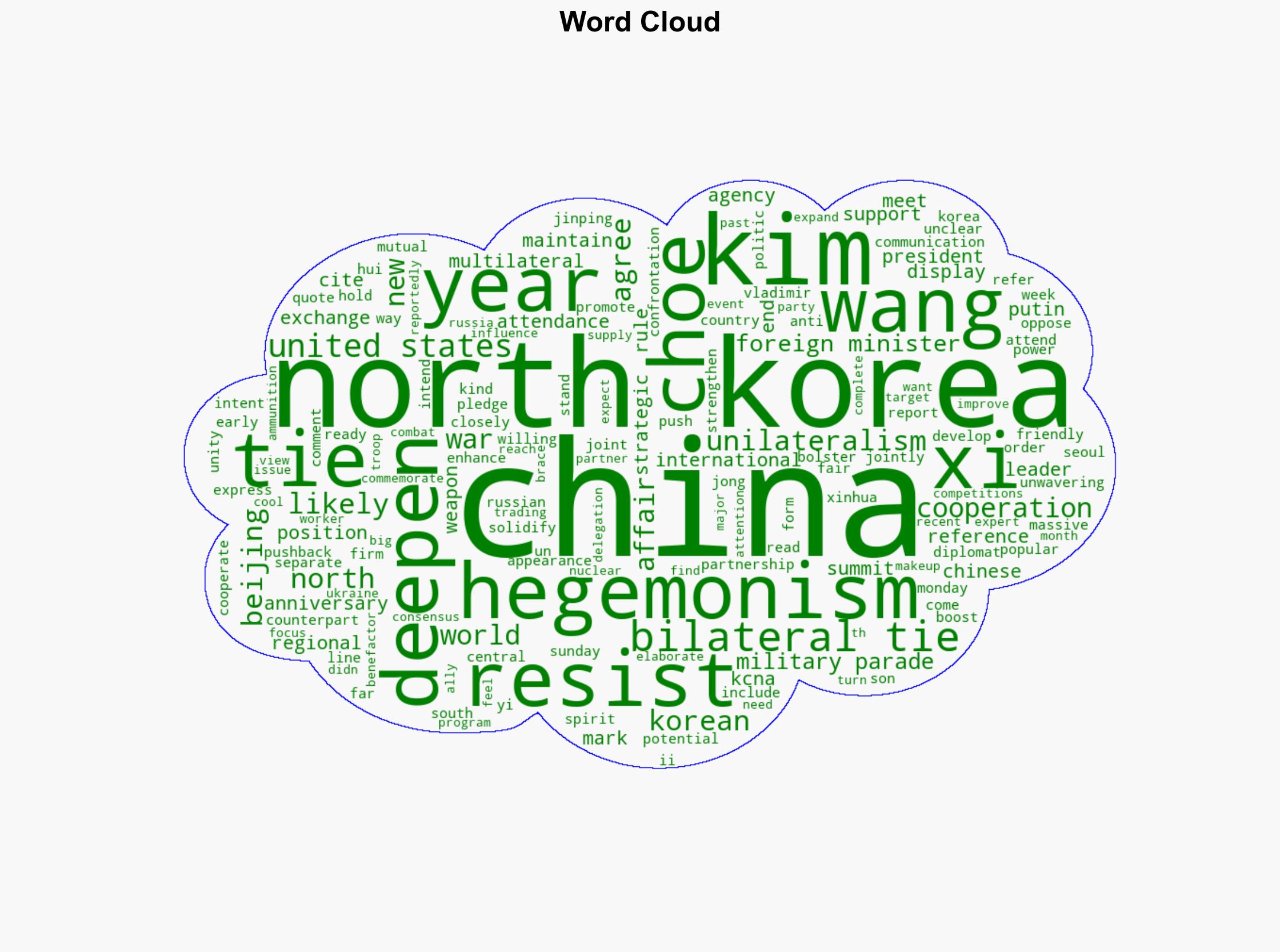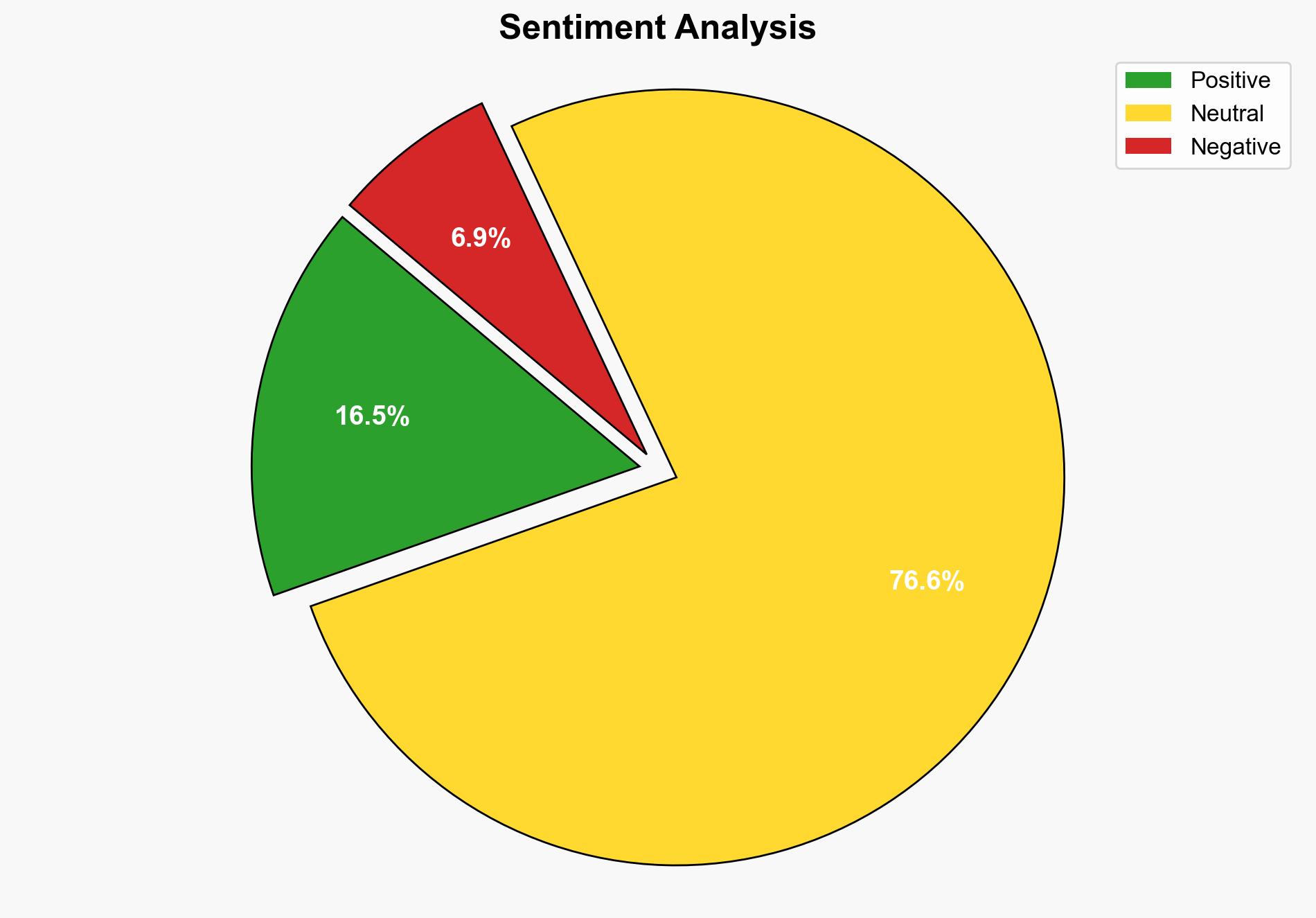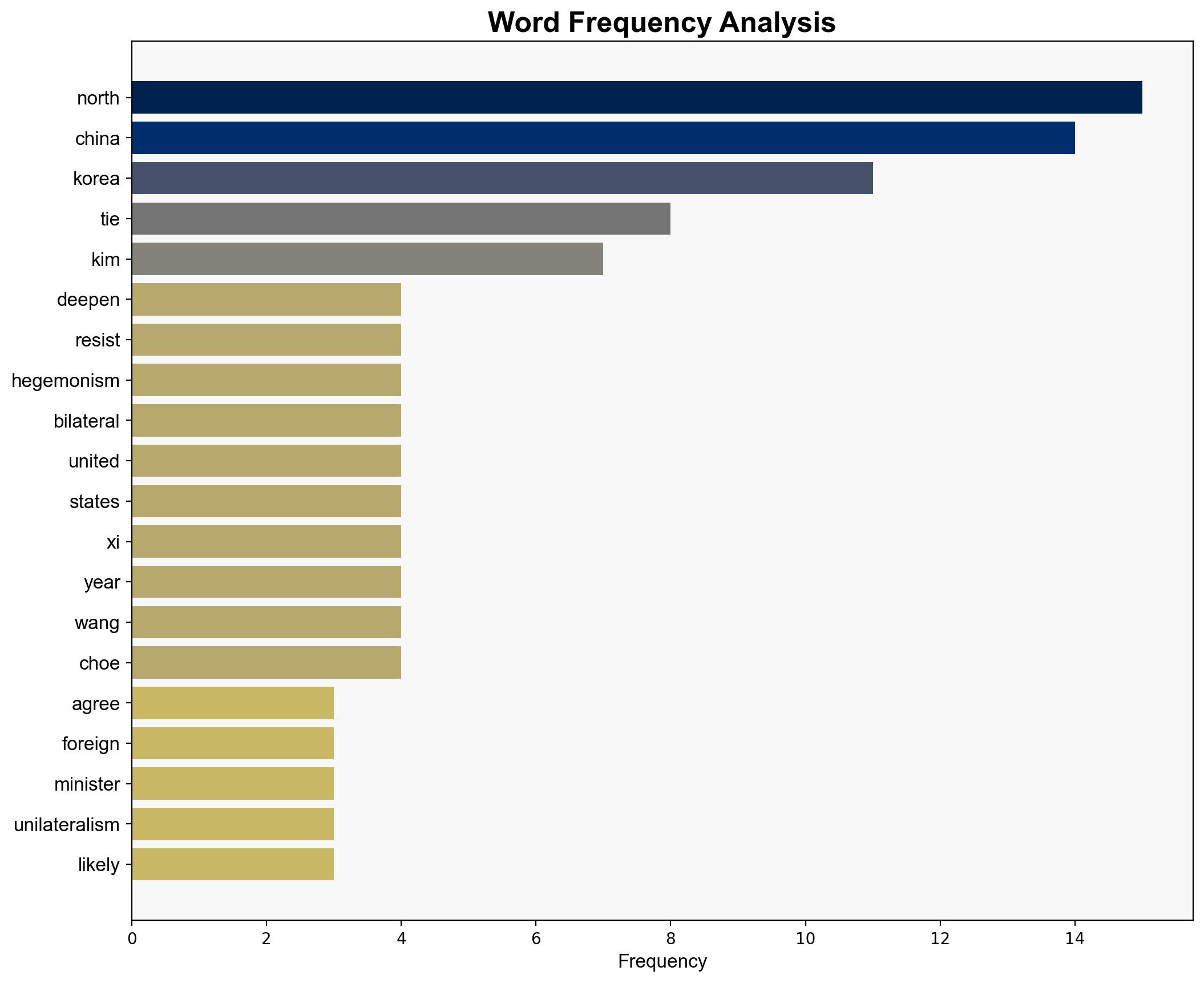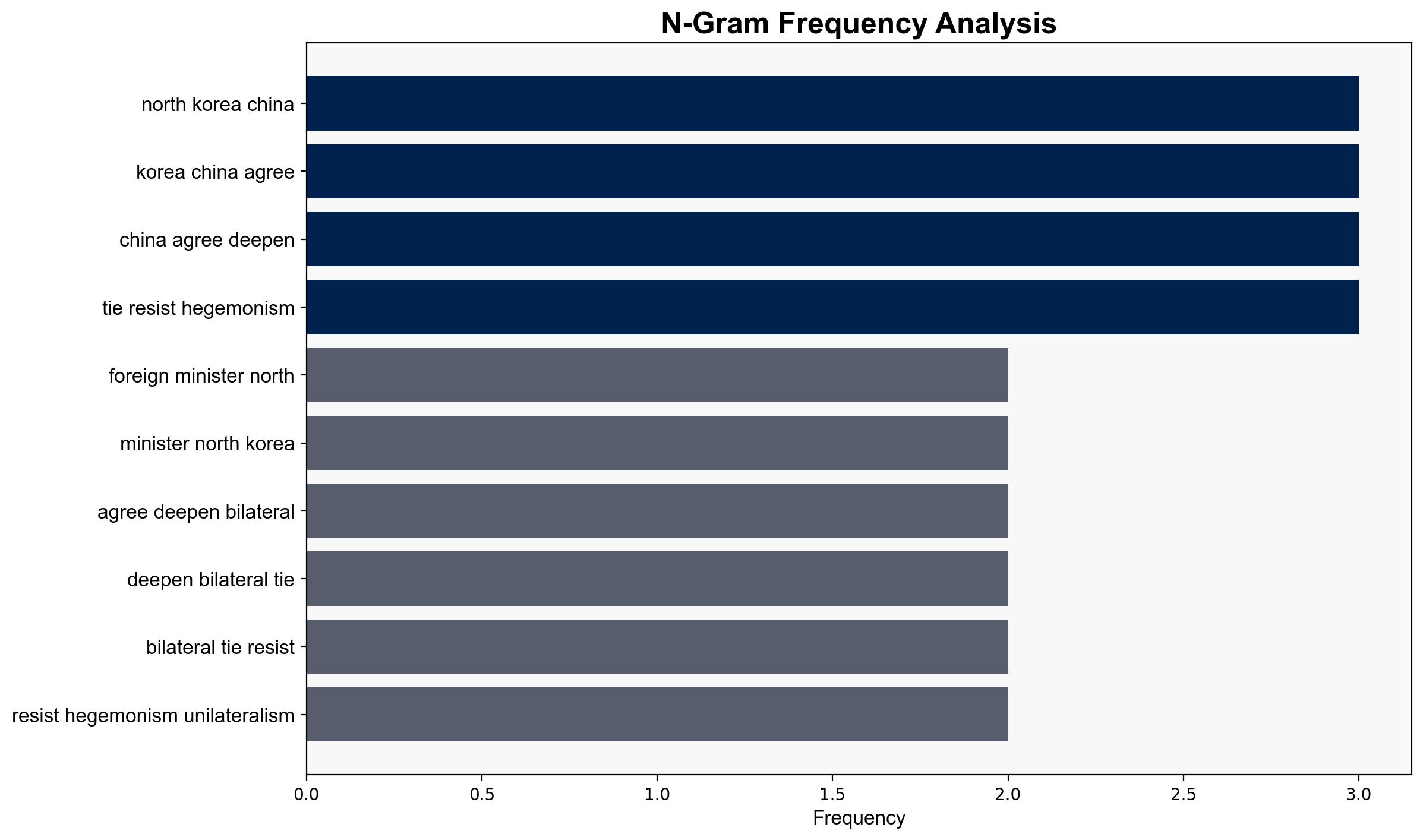Top diplomats of North Korea China agree to deepen ties and resist hegemonism – ABC News
Published on: 2025-09-29
Intelligence Report: Top diplomats of North Korea China agree to deepen ties and resist hegemonism – ABC News
1. BLUF (Bottom Line Up Front)
The most supported hypothesis is that North Korea and China are strengthening their alliance to counter perceived U.S. influence and prepare for potential geopolitical shifts. This alignment may serve as a strategic buffer against Western pressures, particularly concerning North Korea’s nuclear ambitions and China’s regional dominance. Confidence level: Moderate. Recommended action: Monitor developments in Sino-North Korean relations and assess potential impacts on regional stability and U.S. interests.
2. Competing Hypotheses
1. **Hypothesis A**: North Korea and China are deepening ties primarily to counter U.S. influence and strengthen their geopolitical stance in the region. This includes mutual support in international forums and military cooperation.
2. **Hypothesis B**: The deepening ties are more symbolic, aimed at showcasing unity against Western narratives without significant changes in strategic or military cooperation. This may be a diplomatic maneuver to gain leverage in negotiations with the U.S. and its allies.
Using ACH 2.0, Hypothesis A is better supported due to the historical context of Sino-North Korean relations, recent military parades, and mutual statements against hegemonism.
3. Key Assumptions and Red Flags
– **Assumptions**: It is assumed that both countries view the U.S. as a common adversary and that their public statements reflect genuine strategic intentions.
– **Red Flags**: The lack of detailed information on specific agreements or military cooperation raises questions about the depth of this alliance. The possibility of exaggerated rhetoric for domestic or international audiences should be considered.
– **Blind Spots**: Potential internal dissent within China or North Korea regarding this alliance is not addressed, nor are the economic implications of such a partnership.
4. Implications and Strategic Risks
– **Geopolitical**: Strengthened Sino-North Korean ties could lead to increased tensions in the region, particularly with South Korea and Japan.
– **Economic**: Potential sanctions or trade restrictions could arise if this alliance is perceived as a threat by Western powers.
– **Military**: Enhanced military cooperation could escalate arms races or provoke military posturing in the region.
– **Psychological**: This alliance may embolden North Korea’s nuclear ambitions, complicating diplomatic efforts.
5. Recommendations and Outlook
- Enhance intelligence gathering on Sino-North Korean military and economic activities to anticipate shifts in regional power dynamics.
- Engage in diplomatic efforts to reassure allies and deter aggressive posturing by North Korea and China.
- Scenario Projections:
- Best: Diplomatic engagement leads to reduced tensions and increased transparency in Sino-North Korean relations.
- Worst: Escalation of military tensions and economic sanctions destabilize the region.
- Most Likely: Continued rhetorical posturing with limited tangible changes in military cooperation.
6. Key Individuals and Entities
– Kim Jong Un
– Xi Jinping
– Wang Yi
– Choe Son Hui
7. Thematic Tags
national security threats, regional focus, geopolitical strategy, Sino-North Korean relations




